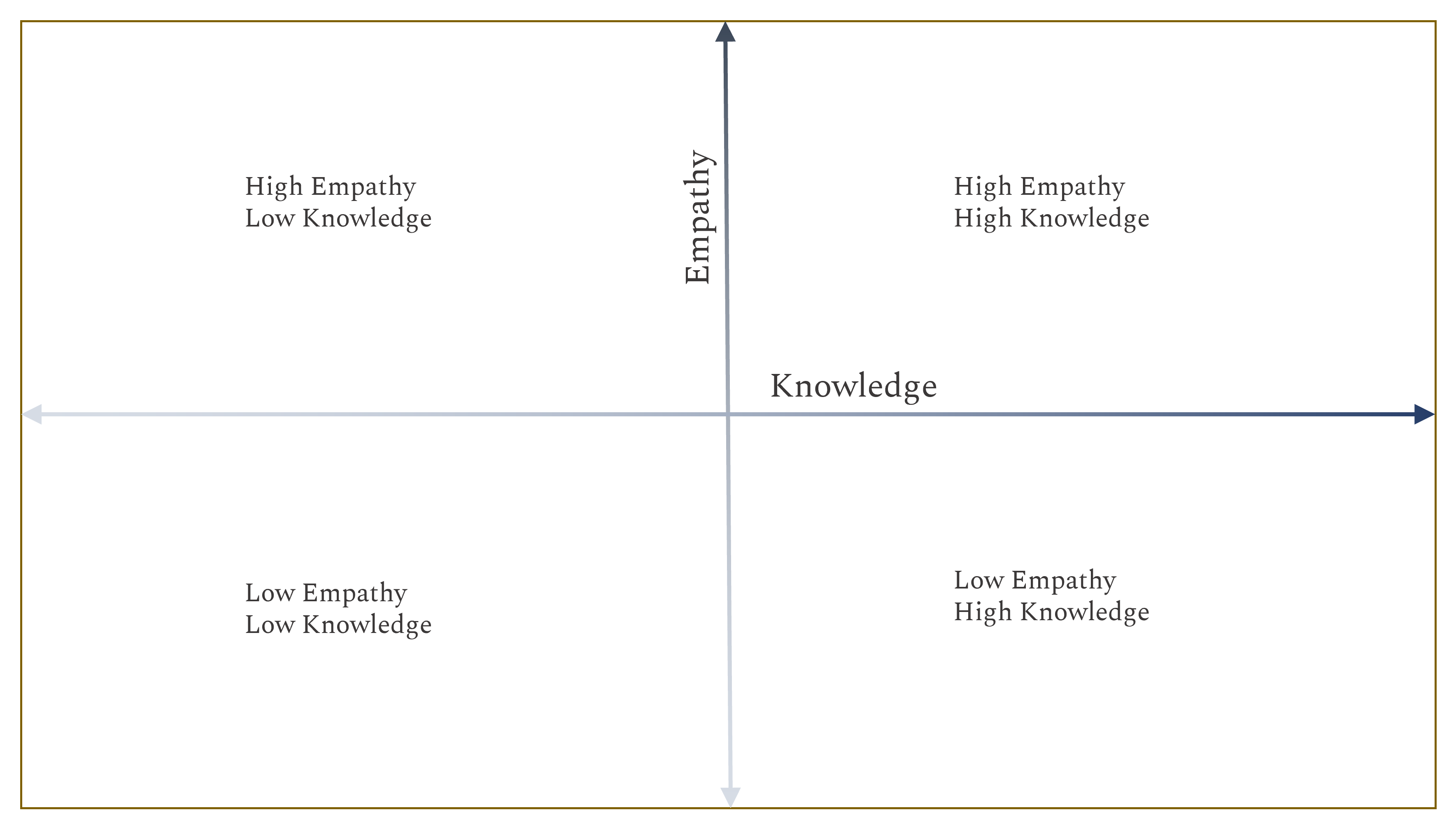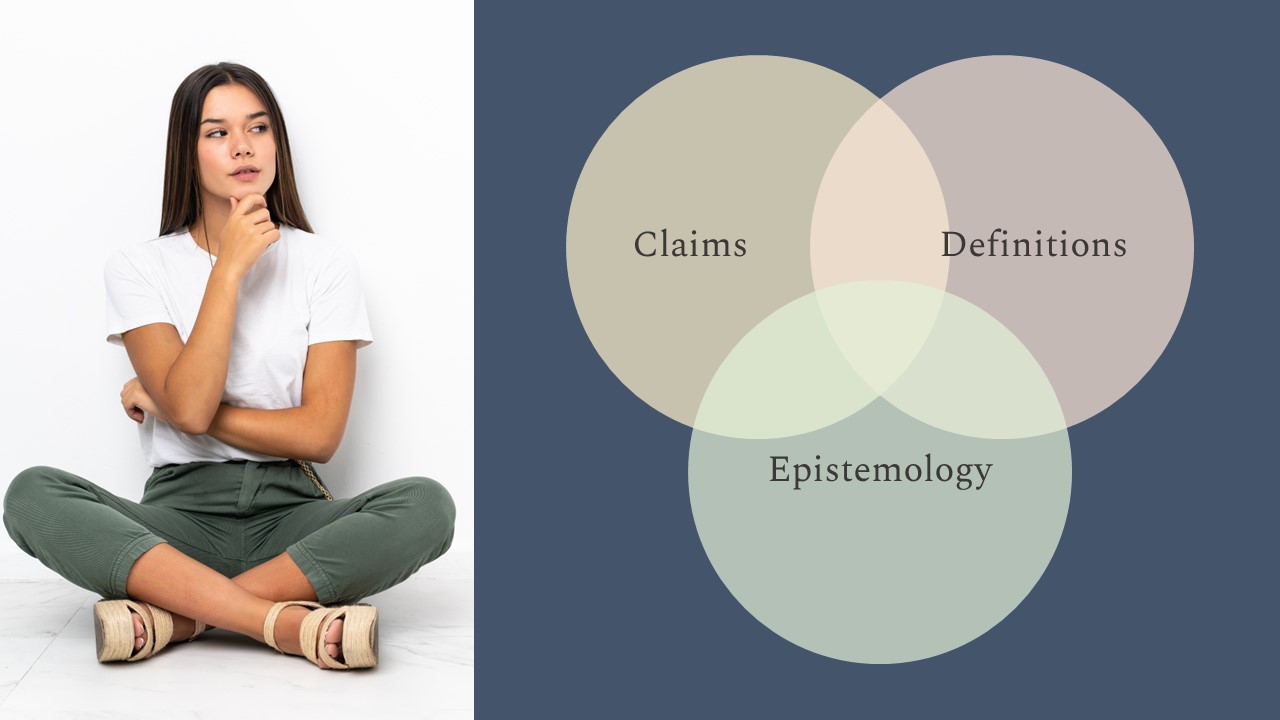What happens when our empathy is high, but our knowledge is low? or in reverse, what happens when our empathy is low and knowledge is high?

Data is not the same thing as narrative information, and narrative information is not the same as knowledge. These are very important distinctions that indicate our level of knowledge. Where we map onto this chart has immense consequences for our church experiences, our gospel conversations, our ability to relate to others, and our ability to appreciate the decisions of church leadership.
In this presentation, we explore these questions and discuss some examples of issues and influencers.
Continue reading “Mapping Empathy and Knowledge, Latter-day Saint Issues and Influencers”
